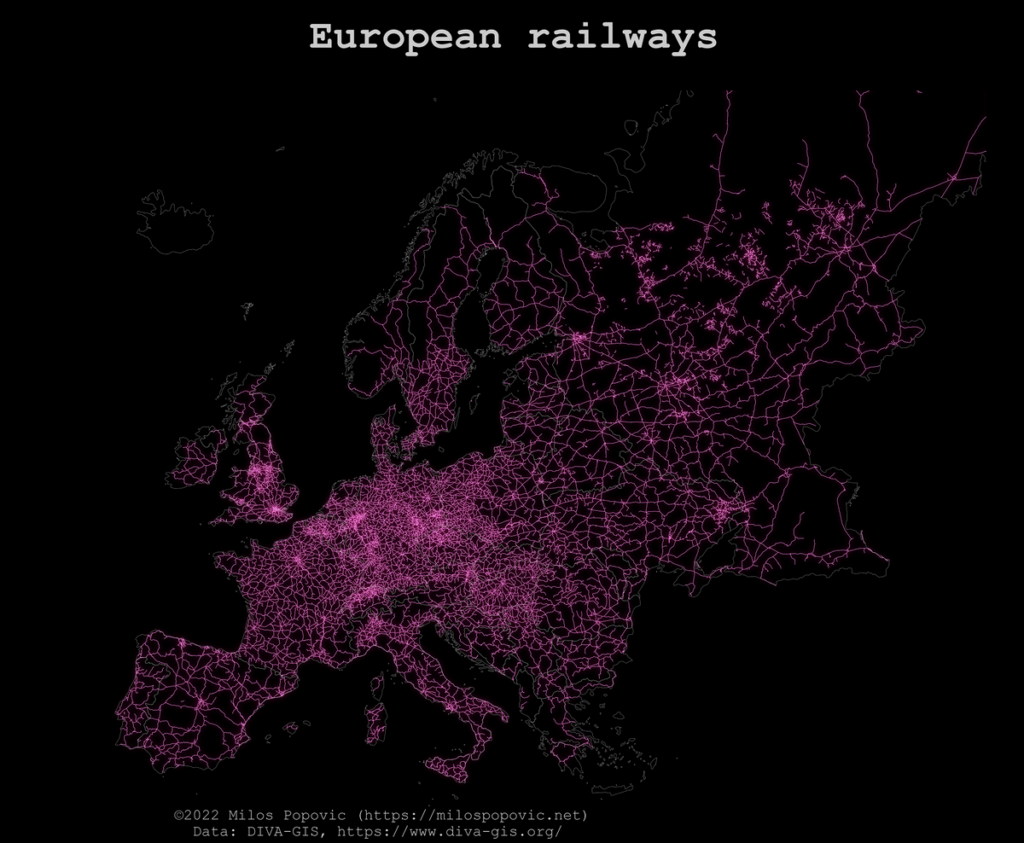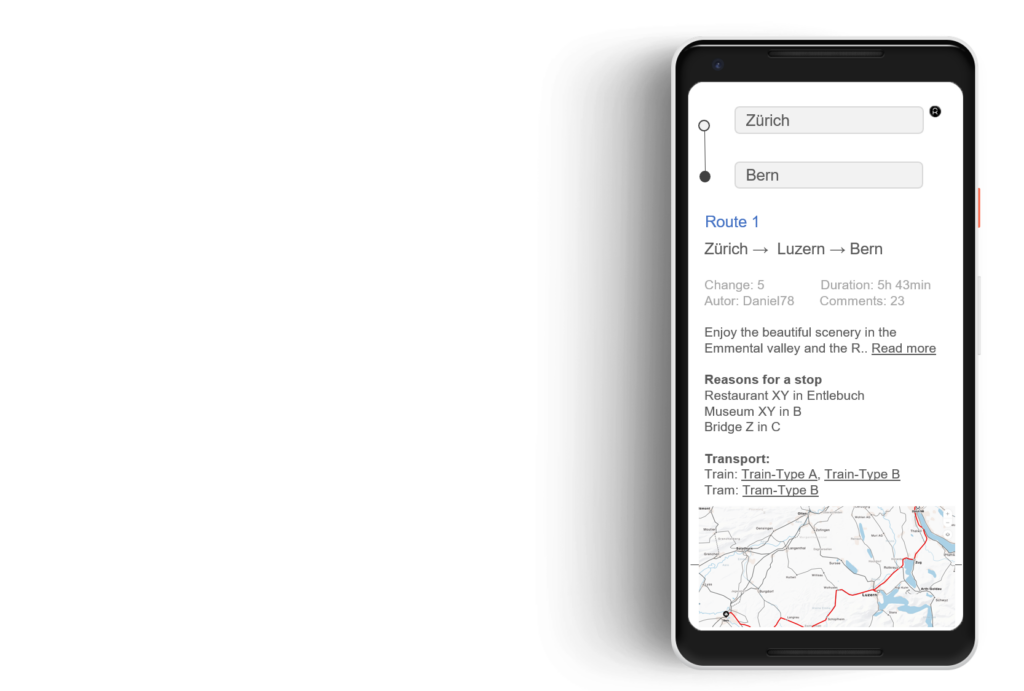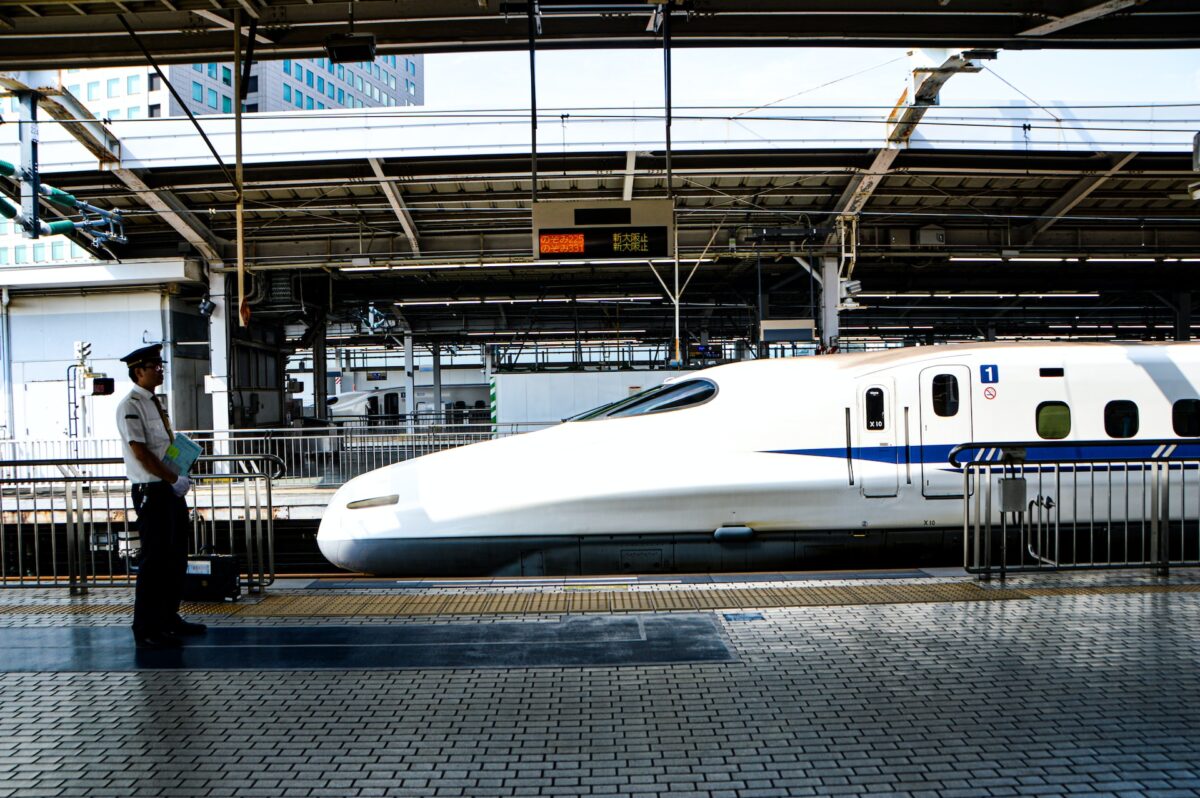I joined a fascinating and almost philosophical discussion about train/rail travel a few days ago.
In today’s world, train travel is all about a safe & quick journey from A to B. Minimising the time and the number of changes is critical for more than 90% of travellers (and here in Switzerland, the train companies are excellent at delivering this).
Train travel: Faster, faster, faster.
This strong focus on time makes it difficult for leisure companies as their focus is „the experience“ – and not the time.
Considering the small number of leisure travellers, it is evident that leisure is a little mouse next to a cheetah (who loves to run amazingly fast).
Will a cheetah ever go slow?
The question that drove our discussion was whether the mouse is sometimes too focused on the cheetah and should better focus on the neutral ground, aka train tracks.
As shown below, the grid in Europe is incredibly large. Using this grid only to move people & freight as quickly as possible from A to B would be a waste.

Where is the beef? Here.
What would happen if we start to think about tracks as we do about streets, the sea or even the air space? Train tracks are just a grid to enable movement from A to B for whatever reason.
The idea to use the grid to move as fast as possible is established but not so using the grid to have a wonderful experience (don’t blame the cheetah). With this mindset, it is no longer about adding leisure train travel to non-leisure train travel but creating a parallel world.
The „experience-based timetable“.
This is how it works:
Let’s say you must travel from Zürich to Bern; both destinations are little dots in a massive train track grid.
Based on your reason for travelling, you choose the timetable based on time or the timetable based on experience.

Let’s scale this to Europe and the route from Rome to Bruxelles. The timetable based on experience shows you the most beautiful lines, while the timetable based on time shows you the fastest way.
It is up to the reason to travel on which timetable to look at.
This is just an example but with this holistic perspective, we no longer have a pure „product view“ on leisure train travel. This may help to think even bigger – and to may understand the cheetah better :)
What do you think?
